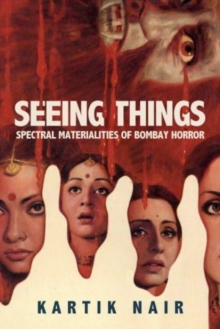
Spiritual Despots : Modern Hinduism and the Genealogies of Self-Rule Hardback
by J. Barton Scott
Part of the South Asia Across the Disciplines series
Hardback
Description
Historians of religion have examined at length the Protestant Reformation and the liberal idea of the self-governing individual that arose from it.
In Spiritual Despots, J. Barton Scott reveals an unexamined piece of this story: how Protestant technologies of asceticism became entangled with Hindu spiritual practices to create an ideal of the "self-ruling subject" crucial to both nineteenth-century reform culture and early twentieth-century anticolonialism in India.
Scott uses the quaint term "priestcraft" to track anticlerical polemics that vilified religious hierarchy, celebrated the individual, and endeavored to reform human subjects by freeing them from external religious influence.
By drawing on English, Hindi, and Gujarati reformist writings, Scott provides a panoramic view of precisely how the specter of the crafty priest transformed religion and politics in India. Through this alternative genealogy of the self-ruling subject, Spiritual Despots demonstrates that Hindu reform movements cannot be understood solely within the precolonial tradition, but rather need to be read alongside other movements of their period.
The book's focus moves fluidly between Britain and India-engaging thinkers such as James Mill, Keshub Chunder Sen, Max Weber, Karsandas Mulji, Helena Blavatsky, M.
K. Gandhi, and others-to show how colonial Hinduism shaped major modern discourses about the self.
Throughout, Scott sheds much-needed light how the rhetoric of priestcraft and practices of worldly asceticism played a crucial role in creating a new moral and political order for twentieth-century India and demonstrates the importance of viewing the emergence of secularism through the colonial encounter.
Information
-
Available to Order - This title is available to order, with delivery expected within 2 weeks
- Format:Hardback
- Pages:280 pages
- Publisher:The University of Chicago Press
- Publication Date:19/07/2016
- Category:
- ISBN:9780226368672
Information
-
Available to Order - This title is available to order, with delivery expected within 2 weeks
- Format:Hardback
- Pages:280 pages
- Publisher:The University of Chicago Press
- Publication Date:19/07/2016
- Category:
- ISBN:9780226368672










